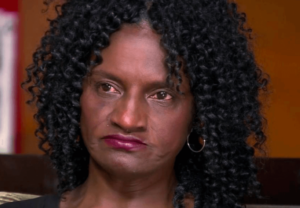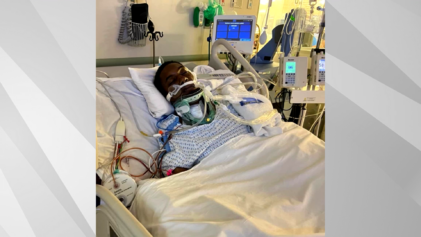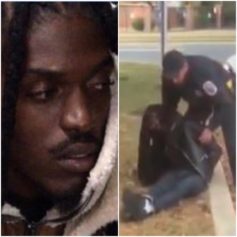Gloria Darden, the mother of slain Baltimore man Freddie Gray, reportedly attempted suicide last week. Her effort to take her own life reveals that the victims of police killings are far more than symbols of injustice and that racism’s toll on any one person can be deadly.
Police arrived at Darden’s North Baltimore home late Wednesday, where the grieving mother was found with superficial wounds. Darden subsequently had a psychiatric evaluation. Family members have not spoken about what led Darden to allegedly attempt suicide. However, their attorney, Billy Murphy, released a statement on Friday.
“Because of an improper invasion of her privacy, Ms. Darden is being thrust into the national spotlight about an extraordinarily personal matter while she is still mourning the loss of her son. I saw her today and I can assure you that this kind of publicity is not at all helpful. We strongly urge the media to show restraint. The family asks that you continue to pray for her and for them.”
It’s difficult to know the exact toll her son’s death has had on her. After Gray died in police custody in April, civil unrest swept parts of Baltimore, garnering international news attention and turning the late 25-year-old into the latest symbol of the Black Lives Matter movement. But Gray is hardly just the face of a movement—he was a beloved son and brother whose passing has forever shaken his mother.
“I will never be the same,” Darden said during an interview after his death.
Watching the parents of Trayvon Martin and Jordan Davis become activists following the killings of their sons, it’s easy to expect for all parents of slain African-Americans to be stoic and composed during the grieving process. But that’s not only unrealistic, it’s unfair to the parents, as the expectation ignores the lingering effects that trauma has on a person.
Darden has had to digest the fact that her son died needlessly at the hands of men and women who swear to protect and serve the community. That’s something for which even the $6.4 million settlement the city of Baltimore has reached with Gray’s family can’t compensate.
Unfortunately, Gray’s death wasn’t the first tragedy Darden has experienced. She’s admitted to battling heroin addiction, suffering from illiteracy and never attending high school. Besides teaching her son to count, she could teach him little else, she said in a 2009 deposition. The social ills of racism and poverty paired up to prevent Darden from having access to the education and job prospects that Americans take for granted as their birthright. The healthcare and housing systems failed her as well.
All of her children were born premature and at very young ages they lived in a home that exposed them to toxic levels of lead. This led to Gray and his siblings developing learning problems. The Gray family eventually received a settlement as a result of the lead poisoning, but the money didn’t erase the adverse health effects they suffered as a result.
Darden has experienced so many setbacks in life that it’s easy to see why she would be tempted to end it all. And she’s hardly alone. The American Foundation for Suicide Prevention reports that Blacks have a low suicide rate (5.4 percent) overall compared to whites (14.2), but a study published this year in JAMA Pediatrics revealed that the suicide rate among Black children has doubled since the 1990s.
Additionally, a number of studies have shown a link between racism and depression, a precursor of suicide. “Racial Discrimination and the Stress Process,” a 2009 study published in the Journal of Personality and Social Psychology, found that when Blacks were exposed to even subtle forms of racism, such as being overlooked, ignored or denied service, they report more feelings of anxiety and depression.
But Gloria Darden has experienced much more than subtle racism. She has endured the most virulent forms of racism in U.S. society—substandard housing, lack of education and the killing of her son by police officers who did not seem to think his life mattered.
One can only pray that Darden comes to believe that her life indeed matters.



